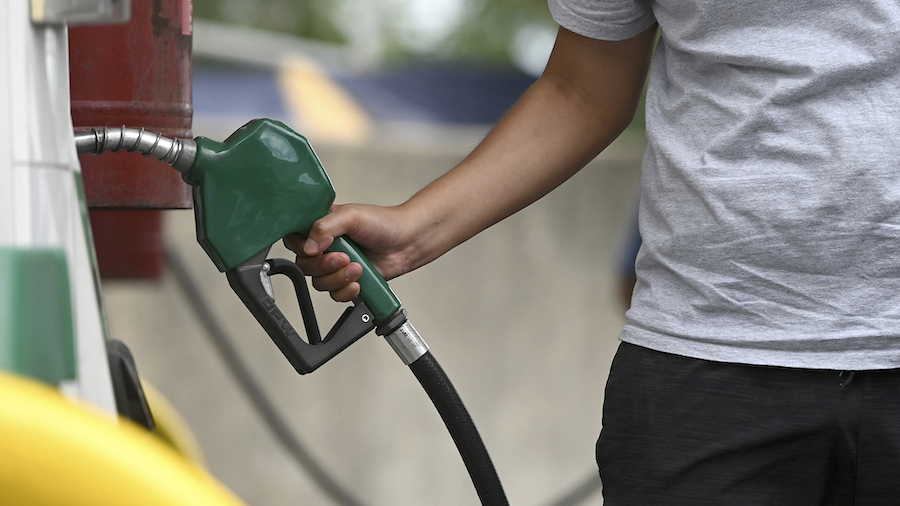(CNN) — Lower gas prices helped consumer confidence rebound in August, ending a three-month period of deterioration in confidence. However, this improvement, while welcome, is tempered by lingering fears that the US economy is heading into a recession.
The Conference Board’s monthly snapshot of consumer attitudes improved to 103.2 from the downgraded 95.3 in July. August’s number matches the level reached in May and marks the first time since then that the headline index has topped 100, the historical benchmark.
“In the first half, consumers were shocked by gasoline prices, the stock market and mortgage rates,” said Bill Adams, chief economist at Comerica Bank. “Consumers seem very reassured that management has stopped escalating.”
The survey found that Americans are less pessimistic about their current and future economic prospects. The current situation index, which measures how people perceive current business and labor market conditions, jumped to 145.4 from 139.7 last month.
The expectations index fell from 65.6 to 75.1, reflecting a reversal of pessimism in consumers’ short-term outlook, which had hit a nine-year low in July.
Ian Shepherdson, chief economist at Pantheon Macroeconomics, attributed the improvement to falling gasoline prices, which have fallen more than a dollar a gallon from their peak in mid-June to a current national average. under $4.
“Expectations are more sensitive to movements in gas prices,” Shepherdson said in a research note, adding that the continued decline in gas prices could be a tailwind to the survey results. “We expect a further increase in September as the lagged effect of lower gasoline prices.”
This suggests that Americans’ perceptions have a key role to play in the trajectory of the economy going forward.
Lynn Franco, senior director of economic indicators at the Conference Board, noted that while it has improved, the low reading of the expectations index suggests the threat of a slowdown continues to loom over the economy.
“The risks of recession persist. Inflation concerns continued to decline but remained elevated,” she said.
The Consumer Price Index and Personal Consumption Expenditures Price Index – the Fed’s preferred measure of inflation – showed moderation in their most recent readings. That’s a good sign, said Liz Young, head of investment strategy at SoFi.
However, while the consumer confidence figure is promising, “it’s a month away,” she warned. “In reality, we need three consecutive months of cooling. Consumer confidence is a pretty choppy reading.
The big risk is that what the gas pump gives, the gas pump takes away, as Patrick DeHaan, head of petroleum analysis at GasBuddy, told CNN Business in an op-ed published Tuesday.
“Even though gas prices have fallen in recent weeks, there is always a chance that the bumpy ride will get worse” if a hurricane on the Gulf Coast or another Russian energy crisis causes an energy shock, a- he declared.
Higher prices thereafter would present a challenge for consumers, said Sam Stovall, chief investment strategist at CFRA Research. “That could increase the likelihood, and then the potential severity, of a recession, depending on how much gasoline prices rise and how long.”
As this spring and early summer have clearly shown, the pain at the pump is a double whammy for the economy: people have less money to spend, and the fear of losing their jobs or ‘raising prices in the future makes them reluctant to spend the money they have on discretionary purchases.
“It’s a real drain on disposable income [and] it ends up acting as a depressant on consumer confidence,” Stovall said. “There is a definite erosion factor.”
The-CNN-Wire™ & © 2022 Cable News Network, Inc., a Warner Bros. Company. Discovery. All rights reserved.

